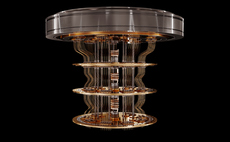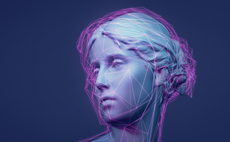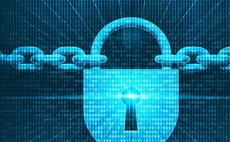Whichever government first produces a working device that can crack public key encryption will be 'master of the world'
18/06/2018 Blockchain came into being as a way of supporting a new currency, Bitcoin, in the wake of the global financial crisis of 2008. By cutting out the middleman (i.e. the banks and central authorities that had got us into the mess) a more just and trustworthy monetary system could be created, its founders reasoned.
The limitations of Bitcoin in this regard have been apparent for some time, and its proponents have generally downgraded its use case from ‘the new money' to more a 'store of value', like digital gold. Nevertheless, banks and central authorities have been setting up blockchain pilots to see if the immutable ledger can be utilised for their benefit.
They may be wasting their time, says Switzerland-based Bank for International Settlements (BIS) - an institution that provides banking services to central banks and international organisations. In its annual report it says that cryptocurrencies are too untrustworthy to act as a replacement for fiat currencies and that blockchains cannot scale sufficiently and are too energy intensive.
"Cryptocurrencies such as Bitcoin promise to deliver not only a convenient payment means based on digital technology but also a novel model of trust. Yet delivering on this promise hinges on a set of assumptions: that honest miners control the vast majority of computing power, that users verify the history of all transactions and that the supply of the currency is predetermined by a protocol," it says.
"Understanding these assumptions is important, for they give rise to two basic questions regarding the usefulness of cryptocurrencies. First, does this cumbersome way of trying to achieve trust come at the expense of efficiency? Second, can trust truly and always be achieved?"
BIS concludes that the answer to both of these questions is no.
The report criticises the enormous energy use of the current generation of blockchains, noting that Bitcoin has the same electricity consumption as Switzerland.
"Put in the simplest terms, the quest for decentralised trust has quickly become an environmental disaster," it says.
Other shortcomings include its lack of scalability and throughput. Blockchains are simply too slow to manage large-scale financial transactions efficiently and throughput decreases with the number of transactions. Moreover, with each new transaction the blockchain grows ever larger.
BIS points out that cryptocurrencies are unstable, putting this down to more than the current speculative nature of the market. A central bank has a duty to stabilise the currency, as well as being a lender of last resort - something not possible in a decentralised system.
"In a decentralised network of cryptocurrency users, there is no central agent with the obligation or the incentives to stabilise the value of the currency: whenever demand for the cryptocurrency decreases, so does it's price."
Then there's the lack of trust as to when payments will be made - if at all. Proof-of-work blockchain consensus on transactions never reaches 100 per cent certainty and trust may be further undermined by the very real prospect of projects being forked.
And there are issues about money laundering and regulation. Their global nature means that global legislation is needed to regulate cryptocurrencies, BIS points out.
A minor plus: blockchain can provide some benefits for the global financial system, however, BIS said. Permissioned blockchains can make cross-border payments and international supply chains can be made more efficient. The latter was recently discussed by FedEx boss Fred Smith.
So, a pretty damning report with many valid criticisms but none that are new, at least on the technical side. Most people accept that the Bitcoin blockchain is very much decentralised network mark 1, and many of the scalability, sustainability and trust problems are being worked on by other systems (see earlier in this blog).
Nevertheless, the question of whether a fully decentralised currency can ever be stable enough to be a trustworthy alternative is an interesting one, and probably not best dismissed as just central bankers hitting back.
15/06/18 Microsoft Azure CEO Mark Russinovich has been talking about a couple of customers who run blockchain based applications on the cloud platform. The first one he mentioned was chemicals corporation 3M which has implemented a system to increase trust in its supply chain.
"3M is doing it to track the provenance of sensitive pharmaceuticals to make sure when the customer gets it they can verify it actually came from a reputable source. There's so much fraud in the pharmaceutical industry with lots of fakes and tampering," Russinovich told Yahoo Finance.
The second customer he talked about was Webjet, an Australian travel company that, among other things, sells hotel rooms online.
"A single transaction of an item like a hotel room to an end user might involve five transactions, and they found that roughly one in 10 of those required some sort of manual intervention because of problems on the way," Russinovich said, adding that in one in 25 transactions "somebody in the chain doesn't get paid so there's a lot of loss and a lot of fraud".
Webjet has created a a data reconciliation service for the travel industry called Rezchain which is based on the Ethereum blockchain running on Azure. Russinovich claimed this has reduced the need for internal interventions by more than 90 per cent.
Microsoft first started experimenting with blockchains on Azure about four years ago prompted by rising interest from enterprises as bitcoin started to make headlines.
"Cryprocurrencies were on top of everyone's mind and everyone was wondering how they could make use of it, and we saw many companies looking with concern at whether they will be disrupted by somebody else that might get to a blockchain solution before them," Russinovich said.
Microsoft has moved quickly to try to corner what is still a very new market. A couple of years ago it announced a partnership with startups Blockstack and ConsenSys to develop a blockchain-based identity system on Azure.
11/06/18 The EOS mainnet, a blockchain designed as a platform for smart contracts to rival Ethereum, went live over the weekend, although it's not yet open for business.
Voting is currently underway among holders of EOS cryptocurrency tokens to decide on the first 21 block producer candidates which will manage the blockchain and mine the blocks, for which they will earn EOS tokens.
EOS is designed to support decentralised applications (dApps) and smart contracts. It is expected that it will be able to handle a much higher throughput than Ethereum - 5,000 per second compared with the latter's 15 - and at a lower latency. EOS uses a proof-of-stake consensus mechanism rather than Ethererum's proof-of-work (PoW) which is harder to scale. Transactions in Ethereum's currency the ether (ETH) also incur relatively high charges while fees to secure the EOS blockchain are managed through inflation - tokens produced to pay the miners mean there are more in circulation.
On the other hand, the EOS model is more centralised with just a few miners controlling the governance of the blockchain - and only one running the election to decide the initial 21.
There can a total of only 21 EOS block producers at any given time. This would be a big problem were all the miners to be in one jurisdiction although the block producers will be continuously rotated to reduce this problem. Nevertheless critics point out that large miners may be able to influence this process by buying votes.
The launch of the EOS mainnet was postponed after critical vulnerabilities were discovered by a cyber security company a few weeks back.
The EOS project has raised approximately $4 bn through sales of its token over the last year making it by far the largest project of its kind in financial terms.
Update 15/06/18: the voting process has now finished.
04/06/18 Blockchain hype is not restricted to fintech startups and dubious cryptocurrency launches. The Chinese government and its supported tech companies now appear to be climbing on board the bandwagon too.
On Sunday, Chen Weihong a presenter on state broadcaster China Central Television (CCTV) - a channel widely seen as a mouthpiece of the government - claimed "the economic value of blockchain is 10 times more than that of the internet".
His statement came during a discussion about blockchain technology that featured well-known figures in the field such as Canadian author Don Tapscott, who claimed that "we're moving from an internet of data to an internet of value".
"No for the first time ever people and organisations can do transactions peer-to-peer," Tapscott said.
Also present were included Chen Lei, CEO of cloud network firm Xunlei, and Stanford University professor and investor Zhang Shoucheng.
As reported by Coindesk Zhang said: "While the real value of the internet is aggregating individual pieces of information into one place, which is exactly what Google and Facebook does, we are now entering an era where information is being decentralised so that individuals can own their individual data. And that's the real value of blockchain that makes it exciting."
Since programmes on CCTV generally reflect the views of the Chinese government the debate was unsurprisingly critical of many of the cryptocurrency ‘initial coin offerings' (ICOs) that have come up from nowhere to net billions, sometimes on the strength of a single white paper. China implemented a nationwide cryptocurrency ban in February. However, there are plenty of signs that China plans to become a big player in the underlying blockchain technology.
On Saturday Baidu - the ‘Chinese Google' - announced a protocol called Super Chain designed to reduce the energy requirement for the blockchain mining process.
Last November the firm unveiled a service called Baidu Jinkuang which would allow users to take advantage of unused computer resources in a peer-to-peer fashion. Baidu is also in the process of creating a blockchain-based photo store that protects owners' copyright and has a blockchain as a service platform in the offing.
25/05/18 Ayr-based MaidSafe (the inspiration, incidentally, for the 'new Internet' Pied Piper in the HBO series Silicon Valley) has come up with what it claims is the most efficient solution yet to the well-known Byzantine Generals problem: achieving consensus across a masterless distributed network in which no one node can be seen as the ultimate source of truth. It's a system the firm says could replace blockchain consensus for trustless data storage.
MaidSafe has been working on its blockchainless peer-to-peer autonomous data network for more than a decade. Unlike traditional client-server networks, the SAFE Network has no central point of control. Instead, it is made up of users' own machines which are used to randomly store encrypted chunks of the files uploaded to the network - a little like BitTorrent but without any central trackers and with everything encrypted. The idea is that it allows data storage (and eventually compute) with no single point of failure and in such a way that only the user has total control of his or her data. Only the user can grant access to people and applications that might want to share it. It also has its own integral cryptocurrency which is used to balance the give and take on the network.
Byzantine fault tolerance is a central issue for all decentralised distributed networks. In brief, how without a central point of authority can 'truth' be agreed upon? A particular node might be faulty or malicious but while another node nearby will see it as such a third node located in a far-flung part of the network might see it as perfectly fine because of the time taken for messages to traverse the infrastructure. Another way of looking at it is how can the network as a whole be sure of the order in which events happen on it?
This long-standing issue was finally solved by Bitcoin inventor Satoshi Nakamoto via the proof-of-work (PoW) consensus mechanism. Miners compete to be the first to solve a complex mathematical problem for which they are awarded Bitcoin and their particular version of the truth is put forward. The other nodes then come together to accept or reject this version and ultimately the network converges on the one true agreed state that will be used going forward. A key application is to prevent the problem of double-spend, where one might otherwise spend a Bitcoin simultaneously in two places.
But while Bitcoin has been highly successful in this regard the limitations of the blockchain regarding carrying capacity, scalability and throughput have become apparent. Moreover, the energy-intensive PoW consensus system has led to a high degree of centralisation since only large-scale professional miners with access to the latest ASICs and cheap electricity can now realistically earn Bitcoin in this way.
These issues make blockchains ill-suited as the basis for a data network - the equivalent of the internet or, looking further afield, the sort of heterogeous distributed networks represented by the IoT, the company says.
"The very design of blockchains means that their use case isn't suited to a global internet that deals with vast amounts of data that needs to be both private and secure," MaidSafe writes in a blog post.
The SAFE Network actually predates the Bitcoin blockchain by a couple of years but it is still at pre-release alpha stage. One of the key things that have held back progress is the difficulty in achieving a reliable consensus mechanism - the equivalent of PoW. However, this is a nut MaidSafe now claims to have cracked with PARSEC (Protocol for Asynchronous, Reliable, Secure and Efficient Consensus), a new algorithm based on a gossip protocol which the firm will open source under the GPL3 licence.
"It provides network consensus through maths and not through burning huge amounts of electricity," said CEO David Irvine.
The blog goes into more detail: "The concept of Byzantine fault tolerance is a crucial one. It means that it is mathematically guaranteed that all parts of the network will come to the same agreement at a certain point in time. Exactly what PARSEC achieves."
It continues: "With PARSEC, consensus is mathematically guaranteed as certain (as well as having a throughput that dwarfs blockchain tech). What's more, PARSEC is highly asynchronous. This means that there is no trusted setup nor any synchronous steps involved."
The company claims that PARSEC, a type of directed acyclic graph (DAG), offers significant advantages over other alternatives to PoW such as Proof of Stake. The nearest competitor would seem to be the Hashgraph DAG, but that has shortcomings when it comes to autonomous data network applications for the IoT, the firm says.
Got any breaking decentralised developments to tell us about? Let us know. (Mature projects with code published on GitHub or similar or a paper reproduced in an established journal please, rather than speculative stuff or coin news.)





















